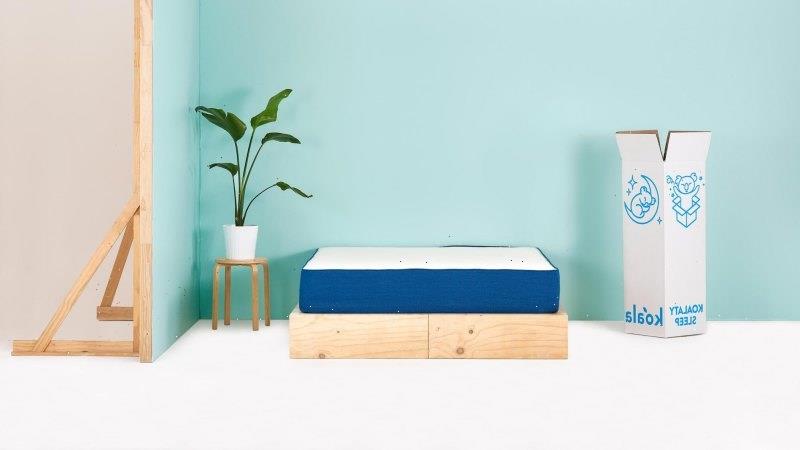Online mattress and homewares brand Koala has cut 30 Australian staff but is continuing its operations in South Korea for the “near term”, despite making 10 roles redundant in the key international market.
Koala, which expanded into South Korea last year, also rejected claims from multiple industry sources it had explored and then jettisoned a plan to list on the Australian stock market earlier this year, as the broader e-commerce sector started to lose its fizz.
A company spokeswoman told The Sydney Morning Herald and The Age it “hasn’t undertaken any official fundraising processes.”
Koala became famous for selling an Australian-made mattress in a box with a generous returns policy. It later moved production offshore.Credit: Supplied
Direct to consumer companies like Koala, which skip the retail middleman to deliver attractively priced products straight to customers, have been swept up in the recent technology downturn, with several firms losing more than half their value.
Inflation, rising interest rates, snarled supply chains, and the revival of retail stores as lockdowns lift have all taken their toll on the sector, weighing e-commerce adoption back down to its long-term trend.
Koala declined an interview request. However, a spokeswoman said uncertain economic conditions had led to 30 redundancies in Australia last week. The company was supporting those “amazingly talented” staff with an outplacement service and professional connections where possible, she said.
Koala picked South Korea as its second international market after Japan, making it a major part of the businesses’ growth plans along with moving into a wider range of furniture and homewares,
“We can confirm the economic uncertainty has meant that 10 of our Korean team members were impacted by the need to reduce our start-up cost in the market,” the spokeswoman said. “For the near term, our operations in Korea continue as we explore more efficient ways to serve the market.”
She also confirmed the company had consolidated its offices in the inner south suburb of Alexandria, Sydney. It previously also had staff in the Sydney CBD and posts by real estate figures suggest the latest move could save Koala $1.7 million.
Koala would not confirm how many staff members it employed before the layoffs, though the professional social network LinkedIn puts it at 288. However, that figure is unlikely to be accurate because some people do not update their employment status when they change or leave a job.
After more than four years building Koala, co-founder Dany Milham left the business in 2021 to start Milkrun Credit:
Industry insiders, who spoke to The Sydney Morning Herald and The Age on condition of anonymity to discuss the market candidly, said Koala had once appeared a runaway success that pioneered delivering mattresses in a box in Australia, only to find itself competing with a raft of copycats.
A similar mattress company in the US, Casper, was valued as high as $US1.1 billion in 2019 but went public for less than half that and was taken private again earlier this year after its value fell by about another 40 per cent. In 2020, Koala was reported to be raising money at a $500 million valuation.
Former Australian cricket captain Steve Smith was an early investor in Koala. Several of its former leaders have gone onto found other high-profile start-ups, including co-founder Dany Milham, now chief executive of grocery delivery business Milkrun, and former marketing head, Tim Doyle, now boss of healthcare start-up Eucalyptus.
Koala’s spokeswoman did not give figures on the company’s revenue, profit, capital raising or savings but championed its prospects and said suggestions it had explored an IPO were “not correct”.
“Like any private company with proven success as a market leader in our categories and markets, we are fortunate enough to receive countless inbound introductions from potential investors. They see the opportunity for Koala to continue to disrupt the global furniture market.”
She said Koala’s margins were double those of some competitors and that more than half its Australian revenue was coming from non-mattress products, representing a more diverse business.
“Word of month about our furniture offering and experiences has led to incredible growth in non mattress sales. With many more unique Koala designs being launched later this year, we’re excited to continue this strong growth into all rooms of the home.”
The company was supported by its existing investors. “We will continue to invest in our operations across Australia and Asia,” the spokeswoman said.
The Business Briefing newsletter delivers major stories, exclusive coverage and expert opinion. Sign up to get it every weekday morning.
Most Viewed in Technology
From our partners
Source: Read Full Article


